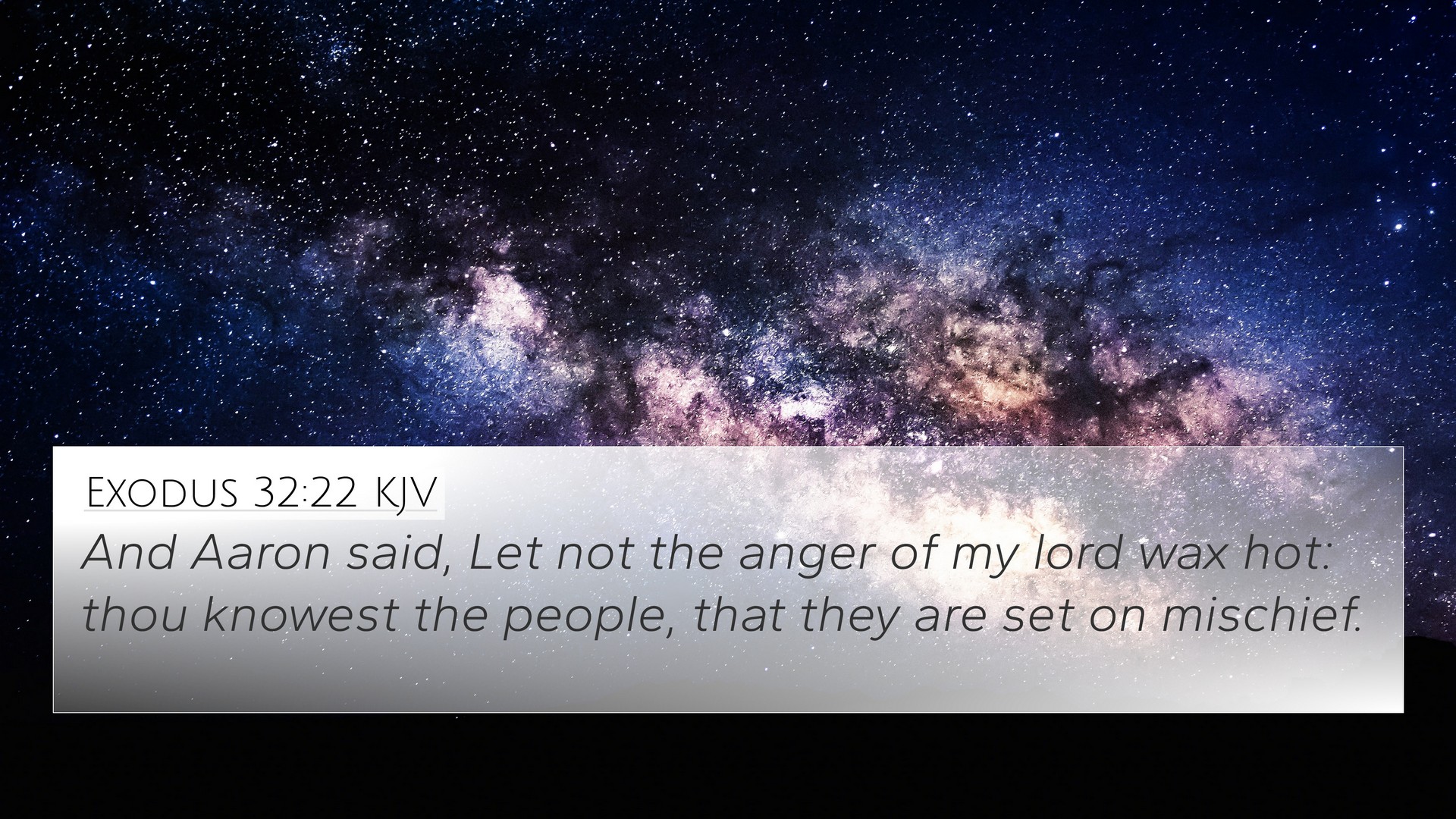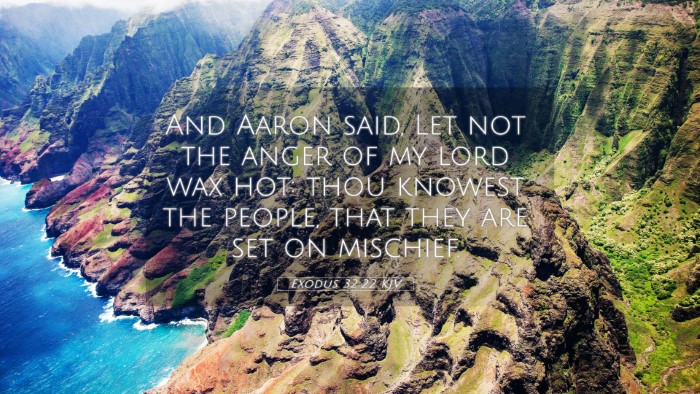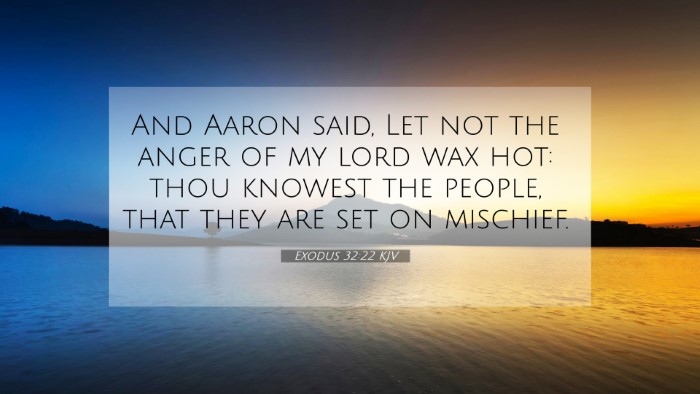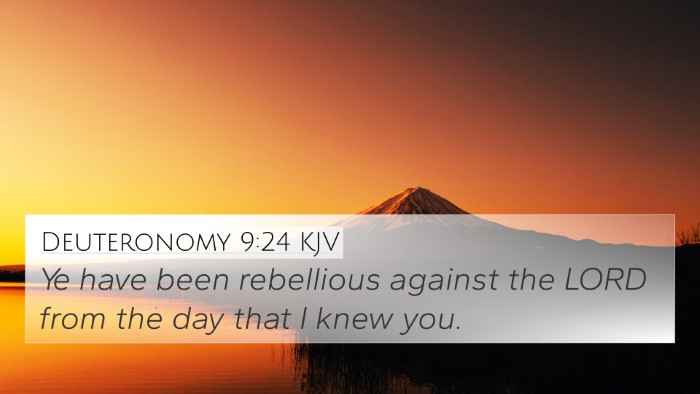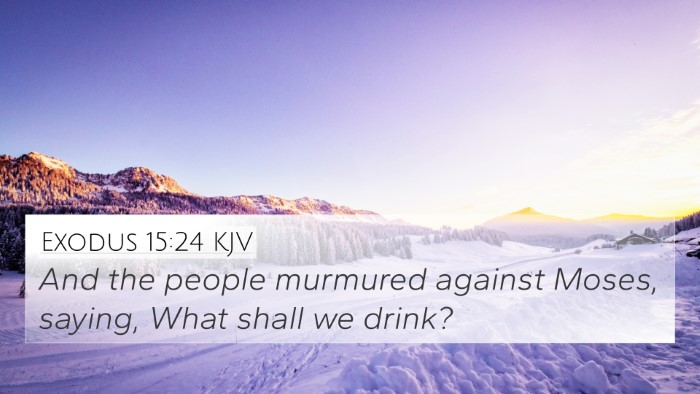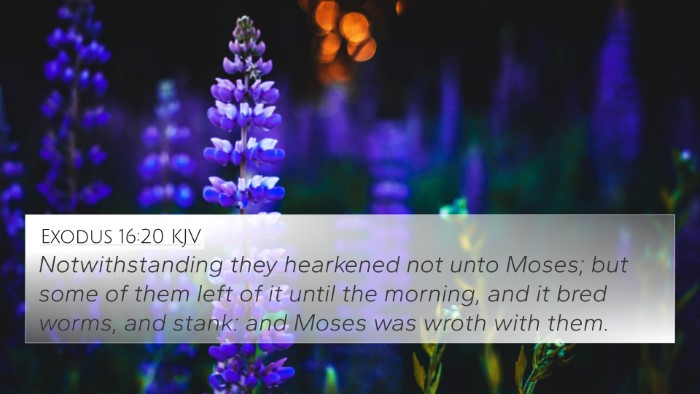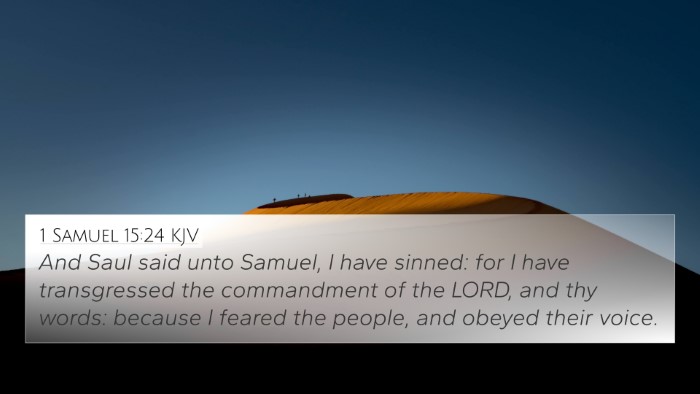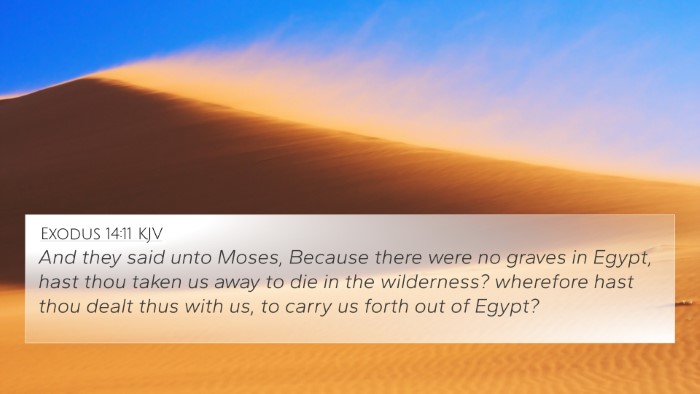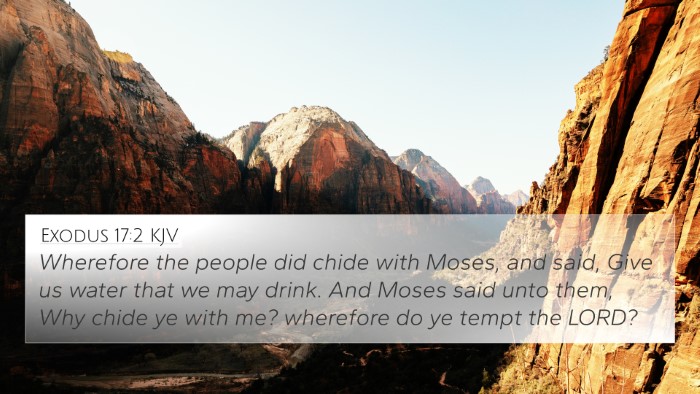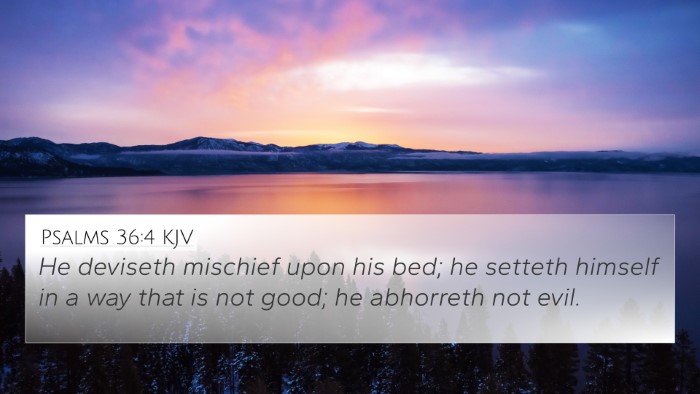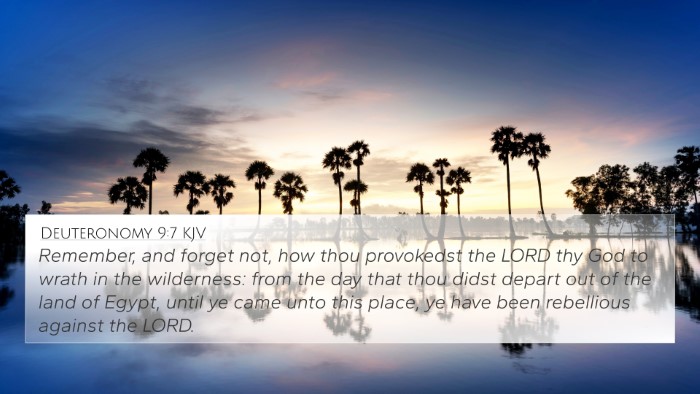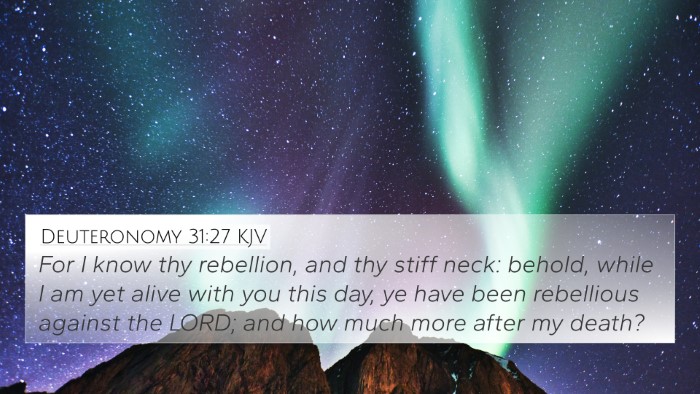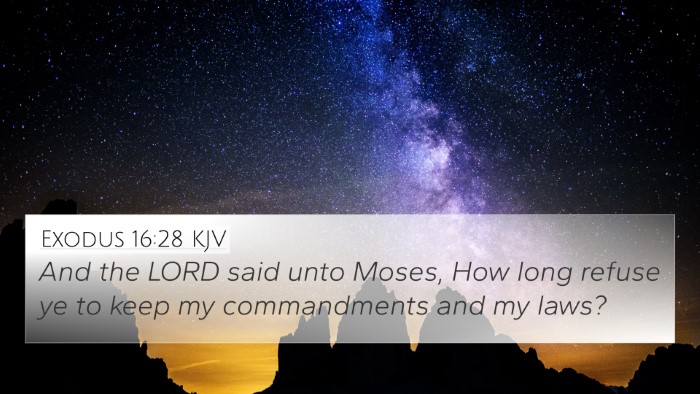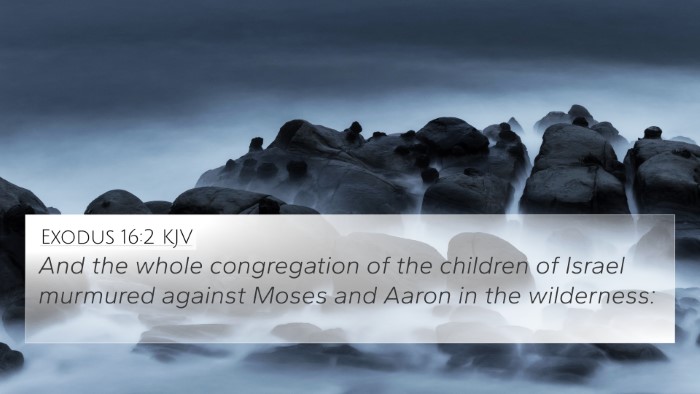Understanding Exodus 32:22
Exodus 32:22 states, "And Aaron said, Let not the anger of my lord wax hot: thou knowest the people, that they are set on mischief." This verse captures the moment when Aaron is confronted by Moses after the Israelites have sinned by making a golden calf. Aaron's response is significant as it reveals the dynamics of leadership and accountability.
Contextual Overview
In the broader context of Exodus 32, Moses had ascended Mount Sinai to receive the commandments from God. During his absence, the people, led by Aaron, turned to idolatry, showcasing their immediate desires and lack of faith. Aaron's plea to Moses highlights human frailty and the tendency to shift blame during crises.
Commentary Insights
-
Matthew Henry:
Henry emphasizes that Aaron's defense method illustrates the propensity of leaders to flatter and placate their followers. Aaron acknowledges the people's inclination toward mischief, which serves as an insight into human nature. His response also reflects the challenges leaders face when managing unruly groups.
-
Albert Barnes:
Barnes points out that Aaron's words suggest a recognition of the people's rebelliousness. He indicates that Aaron might be attempting to alleviate Moses' anger by providing a rationale for the people's actions, thereby attempting to diffuse the situation, which speaks to the complexity of leadership during challenging times.
-
Adam Clarke:
Clarke notes the human tendency to make excuses when confronted. Aaron's statement is not only a plea for mercy but also an implicit acknowledgment of the people's hard-heartedness that leads them to idolatry. Clarke reflects on the need for accountability in leadership and the importance of recognizing one's faults.
Thematic Connections
This verse serves as a focal point for various themes throughout scriptures, notably the struggles of leaders, the nature of sin, and the need for repentance. The response of Aaron can be connected to other biblical instances where leaders face the consequences of their people's sins.
Cross-References
Here are some Bible verses that relate to Exodus 32:22, showcasing the broader thematic dialogue within Scripture:
- Exodus 32:1: The Israelites' impatience leading to idolatry.
- Numbers 14:19-20: Moses intercedes for Israel, highlighting the role of a leader in times of crisis.
- Leviticus 10:1-2: The consequences of disobedience, reflecting God's judgment on improper worship.
- 1 Samuel 15:24: Saul's excuses for disobedience, mirroring Aaron's plea.
- Proverbs 29:25: The fear of man can lead to sin, connecting with the theme of yielding to popular demand.
- Psalm 106:19-23: A reflection on Israel’s history of idolatry and God's compassion despite rebellion.
- Romans 1:21-25: Paul discusses the folly of idolatry, linking to Israel's early transgressions.
- Hebrews 3:12-14: Warning against unbelief and hardening one's heart, akin to the Israelites' rebellion.
- Galatians 6:1: The importance of restoring those caught in transgression, related to leadership responsibilities.
- 2 Timothy 4:3-4: A reminder of the dangers of people turning away from sound teaching, resonant with Aaron's challenge.
Conclusion
Exodus 32:22 serves as an essential verse for understanding the dynamics of leadership, accountability, and the human tendency toward idolatry. The commentaries of Matthew Henry, Albert Barnes, and Adam Clarke offer critical insights into the motivations behind Aaron's words, reflecting the broader biblical themes of intercession, rebellion, and the complexities of guiding a wayward people.
Additional Study Resources
For those seeking to delve deeper into the connections and themes present in this verse as well as others, consider utilizing tools for cross-referencing, such as a Bible concordance or a cross-reference Bible study guide. Engaging with these resources can enhance your understanding of how various scriptures interact and inform one another, illuminating God's overarching narrative throughout the biblical texts.
